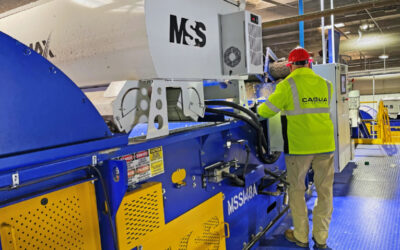The Site Selectors Guild is bringing an up-and-coming profession to the forefront. Founded just seven years ago, the guild is the first and only association to represent the world’s leading site selection consultants. These consultants are committed to helping client companies find the ideal site for every industry, sector, and function.
~
Site Selection is a growing field, in part due to the intricacies of globalization. Consultants in this profession help clients align their global footprints with strategic business objectives.
A core challenge that site selection consultants also help large and mid-size corporations resolve is identifying optimal locations for business operations. These embrace manufacturing plants, research and development (R&D) centers, headquarters, back offices, and other business functions. Site selection consultants advise corporations on selecting locations that will maximize operational performance within acceptable cost parameters.
According to Mark Williams, President of Strategic Development Group, and current President of the Board of the Site Selectors Guild, site selection consultants consider a number of key factors when conducting domestic or global site location projects. “You are going to be concerned about aspects of demographics—can you get the people you need for work with the skillsets you need and the education levels you need? What are the logistics related to your particular projects? Are seaports important, are airports important, highways? We have to become aligned with our clients’ thinking as far as what is the absolute best case location for them to best suit their operational needs so they can function and compete better where we site them than anywhere else,” says Williams.
Site selection consultants work with a wide range of parties, including economic development agencies, railroad companies, airports, utilities providers, and state, county, and city governments. Developing strong relationships with these entities is important, and many successful site selectors have strong backgrounds in economic development and related fields.
Every site selection project is unique and must be approached individually. “Different clients need different things so every project is different,” Mr. Williams says. “There is not a cookie cutter [solution].” One client will need a small 15-acre site, while another must have a 1,000-acre site with significant buffer from adjacent landowners. Some clients will need access to highly educated specialists such as nuclear engineers or chemists, while others need a location that is home to machinists who have experience working on the floor of a manufacturing plant. The costs of doing business will come into play as well, as will cost of living and quality of life factors.
It is critical for site selection consultants to maintain a clear understanding of the industry and of their clients’ specific needs in order to navigate these complex requirements. The Site Selectors Guild only accepts members who demonstrate this ability and who have extensive site selection leadership experience. “It is quite a rigorous process. They are vetted by a committee within the Site Selectors Guild and they are approved—or not approved—by shareholders and the board itself,” Mr. Williams says. “One key criterion, for example, is a minimum of seven years in undertaking leadership in site location practices. Most of our members have ten or twenty or more years in the business. A lot of people apply; a lot of people aren’t accepted.”
The Site Selectors Guild currently has 43 members and only takes on an average of two to four new members a year, due to the rigorous membership requirements. The majority of members are based in the United States, but there are a number of members who are based in Asia and Europe. The site selector industry is composed of a variety of companies, from small, boutique firms to large corporations with well-known names. The Site Selectors Guild represents the full gamut of these companies.
The Guild maintains several clear goals. “One is simply raising the awareness of the value of professional location strategy and site selection services to corporations,” Mr. Williams says. “Our research indicates that about 50 percent or so of companies undertake site selection on their own, without professional advice. So we are trying to make corporations aware of the value of retaining professionals.”
The Site Selectors Guild also wants to advance knowledge and relationships within the industry. “We want to share with each other and with economic development organizations about thought leadership and best practices. We are trying to develop and nurture relationships between the Site Selectors Guild members, the economic development organizations, and corporate stakeholders. So we are trying to create a very vibrant dialogue.”
Lastly, the Guild is eager to influence policy. “We want to contribute to policy discussions that affect location strategy in the future of our profession.” All of these goals point back to one underlying mission. “It is all about advancing the profession of corporate location strategy.”
Members are eager to support one another and help advance the profession. “We are all competitors, but it is an extremely friendly association,” Mr. Williams says. “It is not uncommon to receive some kind of question from a member about what are you seeing in the marketplace, what you did in this situation or that situation. We are sharing ideas with each other about the latest facets of site location practice, so it is benefiting members and it is benefiting others that are around us.”
In addition to advancing the site selectors profession, the Guild’s activities support economic development initiatives and a range of local entities. “They benefit from the discussions and the interaction that we have about the latest site selection practices, current strategies that we are using, what our clients are telling us. Our members are out in the field every week… We are on the front lines getting real time information about what is driving site location decisions.”
Overall, the industry has picked up nicely over the last few years. “Since the 2008 recession we have been on a rise,” Mr. Williams says. Some projects, such as those related to oil and gas, have been on the decline, but there are plenty of other sectors to make up for that loss. “The state of the industry is dynamic.” For example, in the United States, there has been an increase in the number of projects related to the chemicals, aerospace and automotive industries.
An industry-wide challenge is that clients are putting more pressure on site selectors to complete their analysis in shorter amounts of time. “Clients [want to get] to market faster and faster,” Mr. Williams says. “Which of course requires us to become more dependent on certain types of technology that allow us to assess sites, assess demographics, assess logistics, assess other key factors in these projects.”
The Site Selectors Guild has enjoyed remarkable success since its inception in 2010. “It was a brainchild of Bob Ady, seven years ago. He gathered ten or twelve people together and said, ‘look, why don’t we form this association? Why don’t you all contribute something to get this going? And literally within seven years you’ve got an organization that is selling out attendance at its conferences in 15 minutes—so it has been a fantastic run, so far.”
The Guild limits the number of attendees “because we want there to be a certain ratio between our membership and the attendees. We want to have the ability to interact with everybody. We have a large waiting list every year.” Attendees must be practicing professionals from a local, regional, state or national economic development organization, either in the U.S. or abroad. After this year’s successful run in Tucson, Arizona, the next annual conference will be held in Cincinnati, Ohio from March 19th to 21st. The annual conference has become so popular that the Guild has added a second conference in the fall, this year in Seattle, so that more economic development professionals will have an opportunity to attend.
After a strong start, the Site Selectors Guild does not intend to sit on its laurels. “We have had great success so far,” Mr. Williams says. “But we have to remain relevant. We need to continue to add qualified members and we need to interact with our economic development allies and our corporate allies. We have to get better and better at that.”













